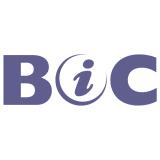
Bank Information Center (BIC)
About
BIC is an independent, non-profit, non-governmental organization that advocates for transparency, accountability, sustainability, and inclusion in development finance.
BIC partners with civil society in developing and transition countries to monitor and influence the policies and operations of the World Bank Group and other international financial institutions (IFIs). In partnership with international, regional, and local CSOs, BIC conducts research and advocacy aimed at reforming and improving IFI policy and practices.
BIC was founded in the 1980s to serve as a bridge between civil society around the world and international financial institutions (IFIs), which were financing development projects that profoundly impacted people's lives. In recent years, shifting power structures and the rise of new institutions have dramatically altered the development finance landscape, and restricted space for civil society continues to make engagement in the development process difficult, risky, or even impossible. Staying ahead of this rapidly evolving backdrop requires them to seek new opportunities for advancing their mission, and makes their work even more important today than when they were founded over 30 years ago.
Why does the Bank Information Center exist?
The policies and programs of multilateral development banks (MDBs) can exacerbate climate change, undermine human rights, and further marginalize people who have historically faced discrimination. They stand with those whose health, livelihoods, homes, sacred sites, and support systems are threatened by the development process, and work to reform the development finance system to prevent harm to people and the planet.
Vision
Development is driven by communities, reduces poverty and inequality, sustains the environment, and fulfills human rights.
Mission
The Bank Information Center (BIC) promotes social, ecological, and economic justice by amplifying local voices and democratizing development.
Type of organization



Experience
Company Offices
- United States (headquarters)
- Washington, D.C.
- 1023 15th St NW 10th Floor